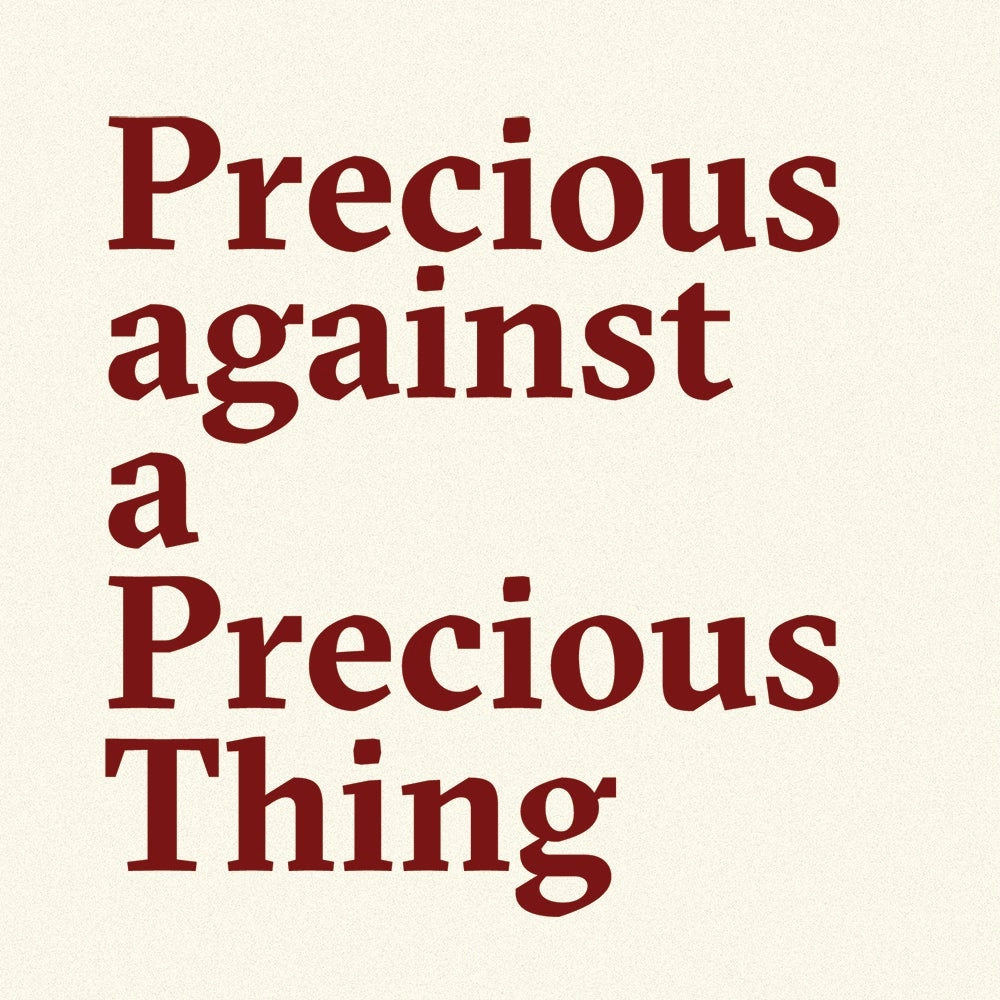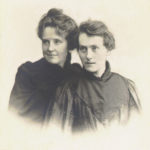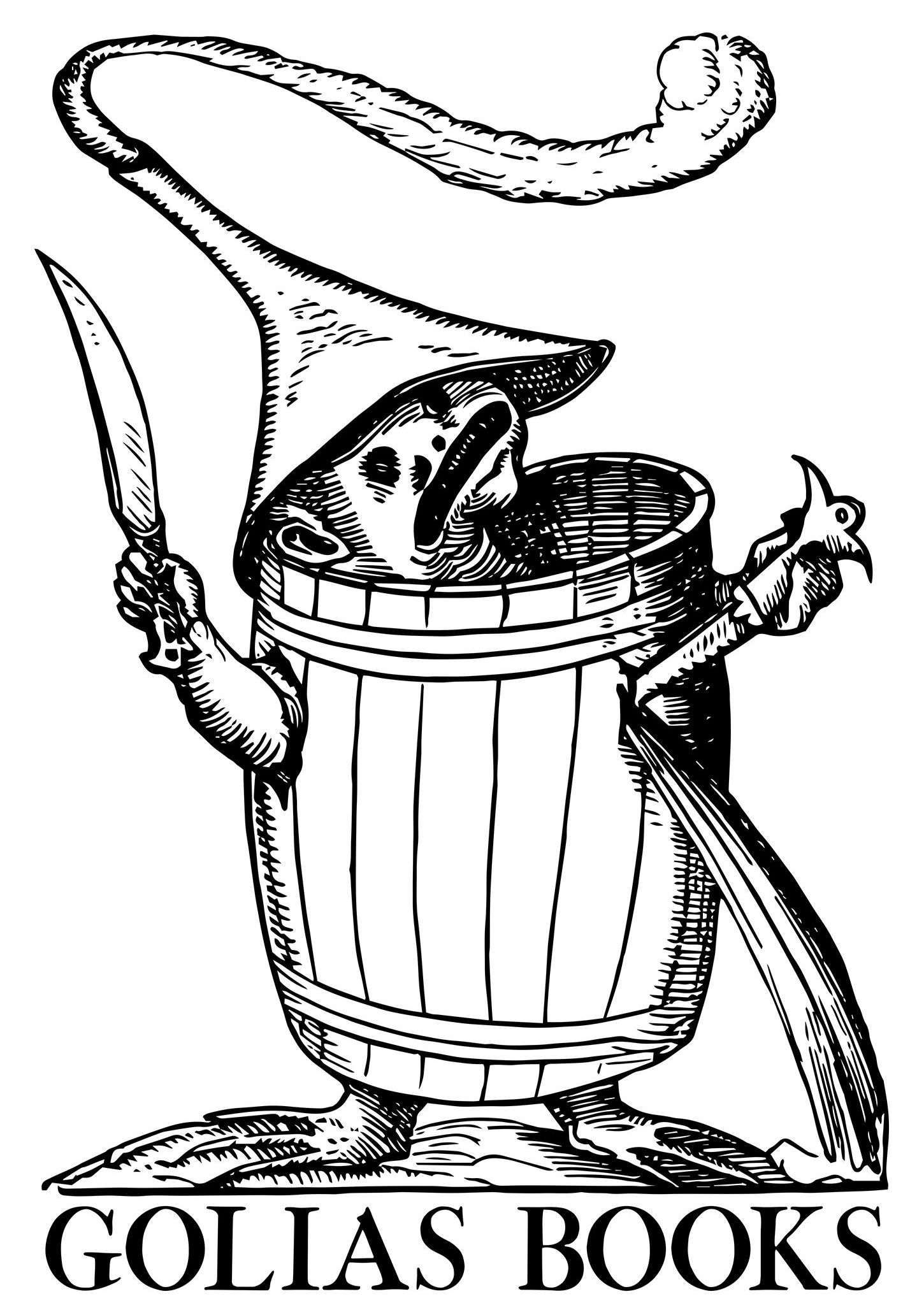
Precious against a Precious Thing
Selected Poems of Michael Field
-
With a new biographical essay by the editors
And a preface by Stacy Szymaszek
-
Paperback, 200pp.
ISBN: 978-0-9994-3132-0
Retail Price: $18.00
-
Spring 2019
Book Description
Composed over a century ago, the poetic worlds of Michael Field are as surprising, immersive, and breathtaking today as when they were written—as inventive as they are formally rigorous as they are deeply felt and lived. After more than a year of editorial preparation we are thrilled to finally be sharing this work, and we are also excited that the inimitable poet Stacy Szymaszek, former director of the Poetry Project, has contributed a lucid and inviting foreword to help ground the volume in our contemporary moment.
"Michael Field" was the shared pseudonym of Katherine Bradley (1846–1914) and her niece Edith Cooper (1862–1913), who lived together as lovers and collaboratively wrote some eight volumes of poetry and twenty-seven plays and whose poetry enjoyed both popular and critical success until their friend, the poet Robert Browning, let slip Field's true identity. While their early poetry displays strong aestheticist currents both formally and thematically, their later poems turn toward Symbolism and Catholic spirituality without ever straying from an idiosyncratic style that is somehow at once extravagantly precise and profoundly sensuous. The selection of poems in Precious against a Precious Thing spans their thirty-year collaboration and a wide range of formal gambits and registers, from erotic reconstructions of Sapphic verse fragments and ekphrastic reveries over Grand Tour oil paintings to theologically freighted odes, sonnets of rural retirement, and elegies to their beloved pet Chow Chow.
Praise for Precious against a Precious Thing
“Field’s poetry remains urgent for its insistence that love, knowledge and the senses are inherently valuable, requiring neither explanation nor justification."
—Steven Zultanski, in a review for Frieze
Field’s work is organized around body logic—experience, making a spectacle of one’s own life, beauty and giving pleasure. In the grips of our current political disaster, it may not carry a lot of weight to think one’s work is important for such things. Yet work that excites my mind-body helps remind me that I am an erotic being. When I proceed through life as my best erotic self, I am harder for the law to control. When I am harder for the law to control, i.e., making a spectacle of myself, others can see me. There is always the hope that Emily Dickinson expressed: ‘Are you nobody too?’ I step out of convention for community, and that action is the enemy of fascism.
"Bradley and Cooper created a completely defiant erotic beast named Michael Field, whom I am grateful to spend some of my nights with. I am gay for him. His work saves my life in the way that only very much alive poetry does."
—Stacy Szymaszek, from her foreword
About the Author

Michael Field was the shared pseudonym of Katherine Harris Bradley (1846–1914) and her niece Edith Emma Cooper (1862– 1913), who lived together as lovers for some thirty-odd years and collaboratively wrote more than eight volumes of poetry and twenty-seven plays.
Their first collaborations under the name Michael Field were the verse dramas Callirrhoë and Fair Rosamund. (They had previously coauthored a volume of poetry, Bellerophôn, under individual pseudonyms.) Published in 1884 to positive reviews, the plays were likened by some enthusiastic critics to Shakespeare’s.
Around 1888, when the two effectively withdrew from society—effectively withdrawing from society and surrounding themselves with an intimate coterie of painters and poets—Bradley and Cooper began Works and Days, the diary of Michael Field that would eventually stretch to two dozen volumes. They finally settled in the London suburb of Richmond in 1899. Here they continued to devote themselves to writing, publishing the vast majority of their plays and poetry during this time, mostly at their own expense and in relative obscurity.
Bradley and Cooper lived expansive lives for unmarried women of their time: they traveled widely throughout Europe, and due in part to Bradley’s outspokenness and gregarious character, in part to their recognized literary talent, the two made contact with—and carried on intense, lifelong relationships with—many luminaries of the day, including John Ruskin, Havelock Ellis, Water Pater, Robert Browning, Dante Gabriel Rossetti, and the painters Charles Shannon and Charles Ricketts, the latter of whom provided drawings and decorations for several of Field’s books
In 1907, after a period of intense reflection—brought about by, among other things, the death of their beloved dog Whym Chow—both poets converted to Roman Catholicism. In 1911 Cooper fell ill with cancer and succumbed to the disease at the end of 1913, only to be followed less than a year later by Bradley. Before her death Bradley compiled and edited a volume of Cooper’s poems from around the turn of the century, Dedicated, and published them under their shared name.
Links and Further Reading
@ Victorian Lives and Letters Consortium
Critical Works
Marion Thain, Michael Field (1880–1914): Poetry, Aestheticism, and the Fin de Siècle
Margaret D. Stetz and Cheryl A. Wilson (eds.), Michael Field and Their World, proceedings from a conference held at the University of Delaware in 2004
Biographies
Mary C. Sturgeon, Michael Field, 1922 (available at the Internet Archive)
Emma Donoghue, We Are Michael Field, 2014
Other Selected Poems
Marion Thain and Ana Parejo Vadillo (eds.), Michael Field, The Poet (a scholarly edition of poems, diaries, letters, and contemporaneous reviews)
Ivor C. Treby (ed.), A Shorter Shirazad: 101 Poems of Michael Field (annotated selection of poems and verse soliloquies)
Emily C. Fortey (ed.), The Wattlefold (uncollected poems)
Diaries and Letters
Thomas Sturge Moore (ed.), Works and Days: From the Journal of Michael Field
Sharon Bickle (ed.), The Fowl and the Pussycat: Love Letters of Michael Field
Bibliographies
Ivor C. Treby, The Michael Field Catalogue: A Book of Lists
